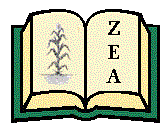
Zea E-Books in American Studies
Files
Download Full Text (671 KB)
Description
John Cotton’s Milk for Babes (also known as Spiritual Milk for Babes), a beginning catechism for children and young Christians, was first published in the 1640s and remained in print continuously for over 200 years. In a series of 64 questions and answers, it rehearses sin and the law, the ten commandments, the role of the Church, the nature of grace, the covenant, salvation, the sacraments, and the last judgment. It is annotated with 203 marginal Bible references on which Cotton based his statement of the fundamental Puritan credo. In its 13 small pages, Cotton’s catechism encompasses the Reformed Protestant faith in simple, succinct, and eloquent language that passed into general usage and, ultimately, into the New England subconscious.
The oldest surviving copy of Milk for Babes was published in London in 1646. It was reprinted many times on both sides of the Atlantic, and at least eight editions from the seventeenth century are known. Between 1690 and 1701, it was first incorporated into The New-England Primer, and it remained an essential component of that work and an integral part of American religious education for the next 150 years.
John Cotton (1584–1652) was by most accounts the preeminent minister and theologian of the Massachusetts Bay Colony. He was educated at Cambridge and was a leader of the Independents or Puritans in England. In 1633, to avoid prosecution for nonconformity, he came to Massachusetts, where he served as “Teacher” for the church in Boston until his death.
This ebook edition of Milk for Babes contains the entire text of the earliest known printing from 1646. It also includes a brief textual history and an added appendix giving the text of all 203 Bible passages cited, keyed to the questions and answers to which Cotton applied them.
Publication Date
1646
Keywords
catechism
Disciplines
American Studies
Recommended Citation
Cotton, John, "Milk for Babes. Drawn Out of the Breasts of Both Testaments. Chiefly, for the Spirituall Nourishment of Boston Babes in Either England: But May Be of Like Use for Any Children" (1646). Zea E-Books in American Studies. 2.
https://digitalcommons.unl.edu/zeaamericanstudies/2


